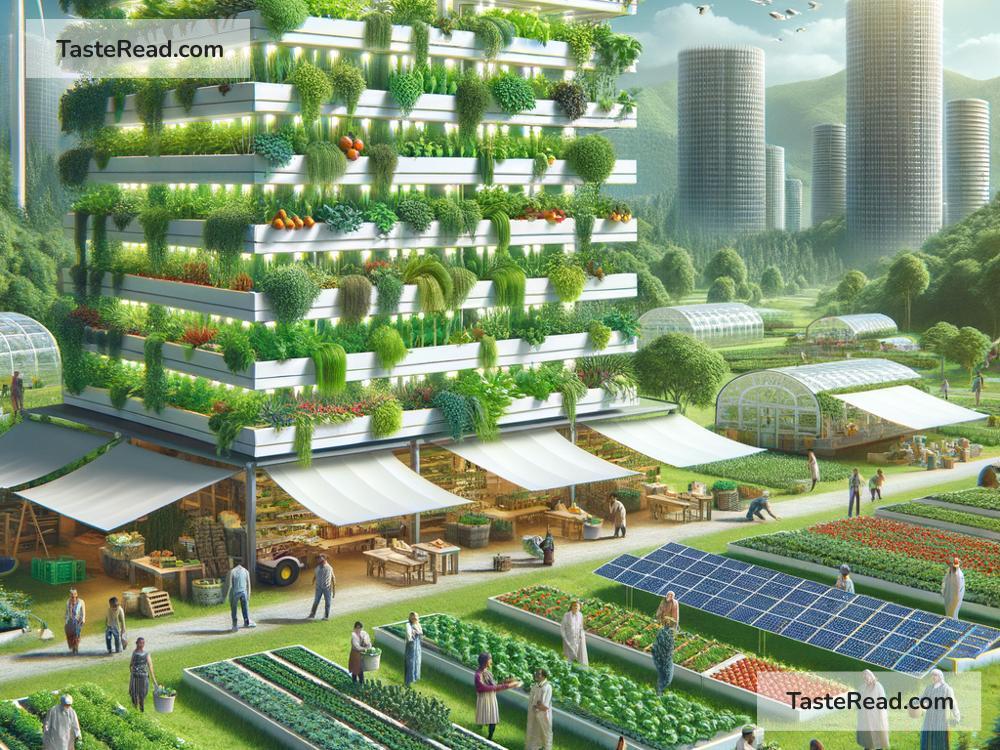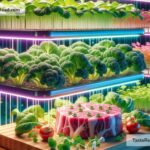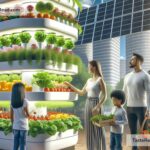The Future of Food and Climate Mitigation
Food is an essential part of our lives. We need it to survive, grow, and stay healthy. But the way we produce, transport, and consume food today is causing big problems for the planet. Agriculture, food processing, and distribution release large amounts of greenhouse gases like carbon dioxide and methane into the atmosphere. These gases are speeding up climate change, leading to rising temperatures, extreme weather, and disrupted ecosystems. Scientists and experts agree that these challenges won’t go away unless we rethink the way we approach food. In this article, we’ll explore how food production can change in the future to help the planet while keeping people nourished.
Food and Climate Change: The Challenge
Food production is responsible for nearly one-third of the world’s greenhouse gas emissions. The reasons are many. Clearing forests for farmland releases carbon dioxide into the air. Raising livestock, especially cows, generates methane, a potent greenhouse gas. Growing crops on a large scale uses chemical fertilizers and pesticides that pollute soil, water, and air. Additionally, transporting food across countries and continents burns fossil fuels, further contributing to climate change.
As the human population grows—it’s expected to reach nearly 10 billion by 2050—the demand for food will increase. Meeting that demand in traditional ways will make climate problems worse. If we don’t act quickly, many regions may struggle with food shortages, droughts, floods, and rising costs of basic items.
Innovative Solutions for Sustainable Food
Fortunately, researchers and innovators are working hard to create solutions for more sustainable food systems. These ideas aim to feed everyone in the future while protecting the planet.
1. Plant-Based and Lab-Grown Foods
Eating less meat and dairy can significantly reduce greenhouse gas emissions since livestock farming is a major contributor to climate change. Plant-based alternatives, such as veggie burgers and oat milk, have already gained popularity. But the future could bring even more options. For example, scientists are developing lab-grown meat—real meat grown from animal cells without the need for raising or slaughtering animals. Lab-grown meat has the potential to produce food using fewer resources and with less impact on the environment.
2. Regenerative Farming
Regenerative farming is an approach to agriculture that focuses on improving soil health, biodiversity, and water management. Unlike conventional farming, which often depletes soil and damages ecosystems, regenerative farming restores and strengthens them. Practices like crop rotation, composting, and planting cover crops can help capture carbon from the atmosphere and store it in the soil. This not only reduces greenhouse gases but also makes farms more resilient to climate shocks like droughts and floods.
3. Vertical Farming and Urban Agriculture
As cities grow, there’s less space for farmland. To solve this problem, vertical farming is gaining attention. Vertical farms grow crops in stacked layers inside buildings, using LED lights and hydraulic systems to provide water and nutrients. These farms require far less land and water compared to traditional farms, and they can be built closer to where people live. This reduces the need for transporting food over long distances, which helps cut emissions.
Urban agriculture is another exciting idea. Rooftop gardens, community farms, and hydroponics systems are some ways people in cities can grow their own fresh food sustainably.
4. Food Waste Reduction
Around one-third of the food produced globally is wasted each year. This waste happens for many reasons: food spoiling before it’s eaten, overstocked grocery stores, and people throwing away uneaten meals. Reducing food waste can have a direct impact on climate mitigation by lowering the need for food production and decreasing landfill emissions.
Many apps and technologies now connect surplus food to people in need, such as Too Good To Go or Olio. Governments and businesses are also pushing for better packaging and storage solutions to minimize waste.
5. Harnessing Technology in Agriculture
Technology will play a big role in the future of food. Farmers are adopting precision tools that use drones, sensors, and satellites to monitor crops and apply fertilizer or water only where needed. This reduces the overuse of resources and lowers environmental impact. Additionally, artificial intelligence (AI) is helping scientists predict climate trends and design crops that can survive harsh conditions, like heat, drought, or floods.
Why Acting Now Is Important
Changing the way we produce and consume food isn’t just good for the planet—it’s also necessary to ensure food security for future generations. Without action, climate change will make growing food more difficult. Rising temperatures might reduce crop yields, while unpredictable weather events could wipe out harvests. Coastal flooding caused by rising sea levels could destroy fertile farmland. At the same time, global hunger could worsen if food systems remain inefficient.
The good news is that everyday people can contribute to the solution. Choosing plant-based meals, buying locally grown products, supporting brands that prioritize sustainability, and reducing food waste are simple steps anyone can take. Governments and companies also need to play their part by investing in innovative food technologies and adopting policies that prioritize environmental health.
Closing Thoughts
The future of food and climate mitigation is all about balance. We need to find ways to meet the growing demand for food while protecting the planet from harm. From plant-based meals to high-tech farms and smarter ways to reduce waste, there are many solutions available. By embracing these changes, we can create a food system that supports both humanity and the Earth. If we act now, we can make sure future generations inherit a world where there’s enough food for everyone—and a healthy planet to enjoy it on.


